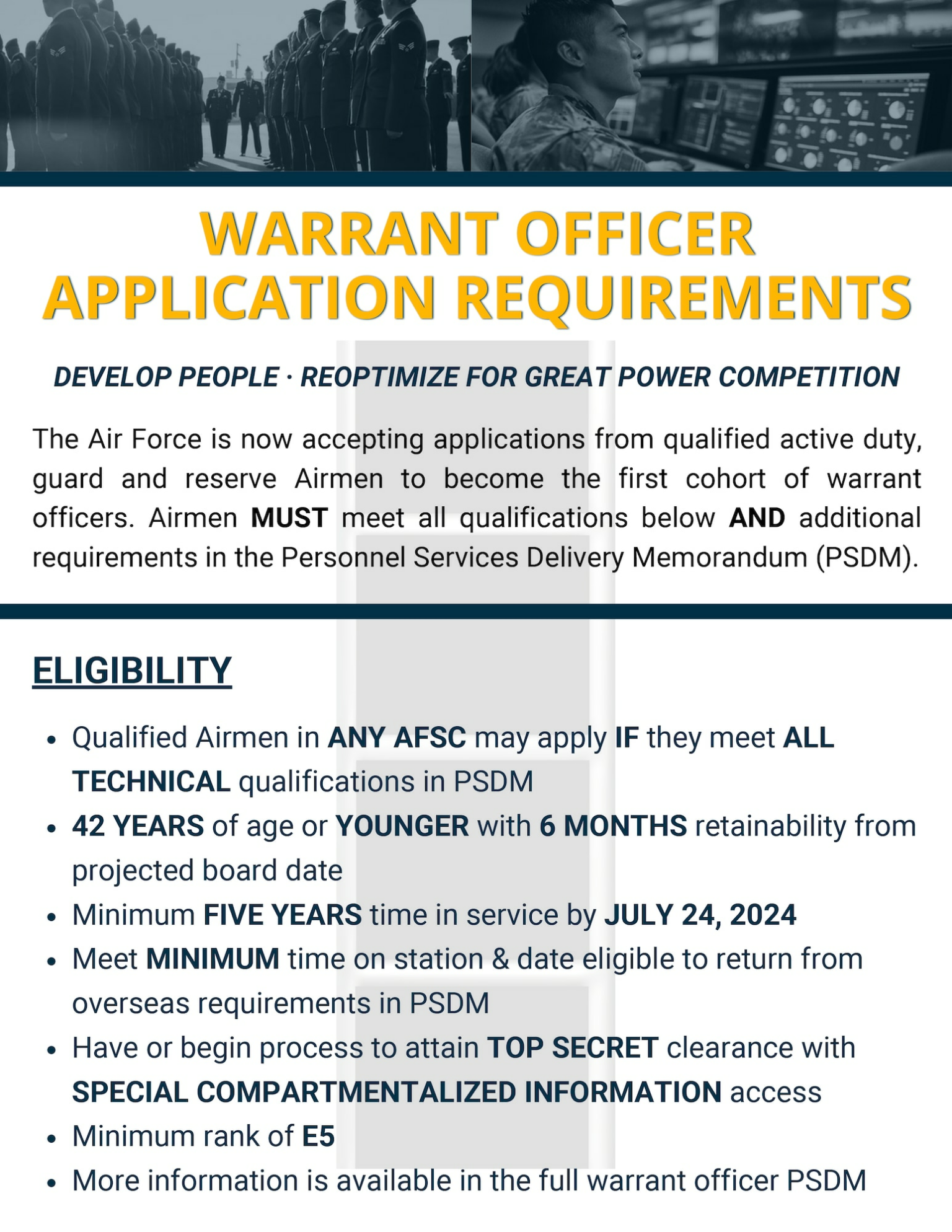The Air Force is now accepting applications for Airmen aspiring to become warrant officers in the information technology and cyber career fields. This initiative was announced by Secretary of the Air Force Frank Kendall, who emphasized the need for technical proficiency and operational effectiveness in the face of evolving security challenges. This marks a significant milestone in Air Force history, as up to 60 selected candidates will have the opportunity to address the multifaceted challenges of today’s security landscape.
The reintroduction of the Warrant Officer Corps in the Air Force aims to address critical operational needs while maintaining highly perishable skills. These warrant officers will serve as technical experts, functional leaders, advisors, and risk managers, contributing to the overall proficiency of their organizations. The Air Force has created two new specialty codes for warrant officers in cyber and information technology, reflecting the crucial role they will play in these domains. These officers will provide technical guidance to commanders, mentor cyberspace personnel, and enhance the overall cybersecurity posture of the Air Force.
Applicants for the Warrant Officer Corps must hold the rank of at least staff sergeant and have one year of active federal service. They must also meet specific experience and proficiency requirements outlined for each warrant officer specialty. The selection board process, scheduled for June 24-28, will identify top candidates for the first cohort, who will undergo comprehensive training at the Warrant Officer Training School at Maxwell Air Force Base. Upon graduation, candidates will be reassigned to operational units across the Air Force to maximize their effectiveness in enhancing technical readiness and operational effectiveness in cyberspace operations.
The reintroduction of warrant officers reflects the Air Force’s commitment to expanding and retaining technical excellence in the face of Great Power Competition. By investing in talent management programs that preserve proficiency and competence in highly technical skills, the Air Force aims to ensure its readiness to stay ahead of rapidly advancing threats and safeguard national security interests effectively. This strategic shift towards bolstering technical proficiency and operational effectiveness marks a pivotal moment in Air Force history and represents a significant step towards addressing the challenges of today’s security landscape.









